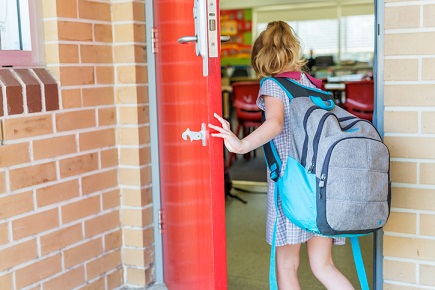
Below, some experts provide their advice to parents and educators.
Dealing with bullying and cyberbullying
Associate Professor Barbara Spears of UniSA shares some counter-bullying ideas for parents to consider.
1) Listen to your child: they have shown courage in reporting to you about their experiences, and in sharing their emotions
2) Reassure them that it is not their fault
3) Ask them how they want you to deal with it: what would make them feel comfortable
4) Communicate openly with the school; partner with them to support your child and to stop the bullying; establish the facts of the situation and follow up
communications
5) Be patient but constant: the school leadership and teachers will be working to making it stop; keep checking on how things are progressing and what they have done to prevent it occurring further.
Inclusive schooling for students with a disability
Professor Denise Wood of CQUniversity Australia, said that beginning school for the first time or transitioning into a new class can be a stressful time for young people and their families.
“This is particularly so for young people with a disability who may need particular adjustments and supports to be able to participate on the same basis as other students,” Wood said.
“Schools have a responsibility to provide an inclusive environment for all students, and teachers and support staff play an important role in ensuring that each student receives the support they require to be a successful learner and to be able to participate in all aspects of the school’s activities.”
Therefore, says Wood, it is important that the young person, family members, caregivers, relevant professional staff and teachers are all part of the planning process.
“Such planning should focus on the student’s strengths and achievements and also identify goals, effective strategies for learning, and reasonable adjustments required to enable the student to achieve their goals within an inclusive school environment,” she said.
School transitions for students from a non-English-speaking background
Professor Chris Davison of UNSW Sydney said students learning in and through English as a second or additional language or dialect (EALD) are a very diverse and growing cohort of students in our schools.
“They include those children perhaps born in Australia enrolling in their first year of school with little or no English through to students in their late teens arriving as immigrants,” Davison said.
Research says students can take from 5-10 years to learn English to the same level of proficiency as their peers, depending on age and background.
“This means that it is crucial that EALD students be supported to learn in English while learning English”, Davison said.
“They need social language so that they can be comfortable in school, start to make friends, and to take part in classroom activities with other students, but they also need appropriate curriculum content for their age and stage of development.”
Related stories:
Premiers new council takes aim at bullying
New private schools prepare to open their gates


